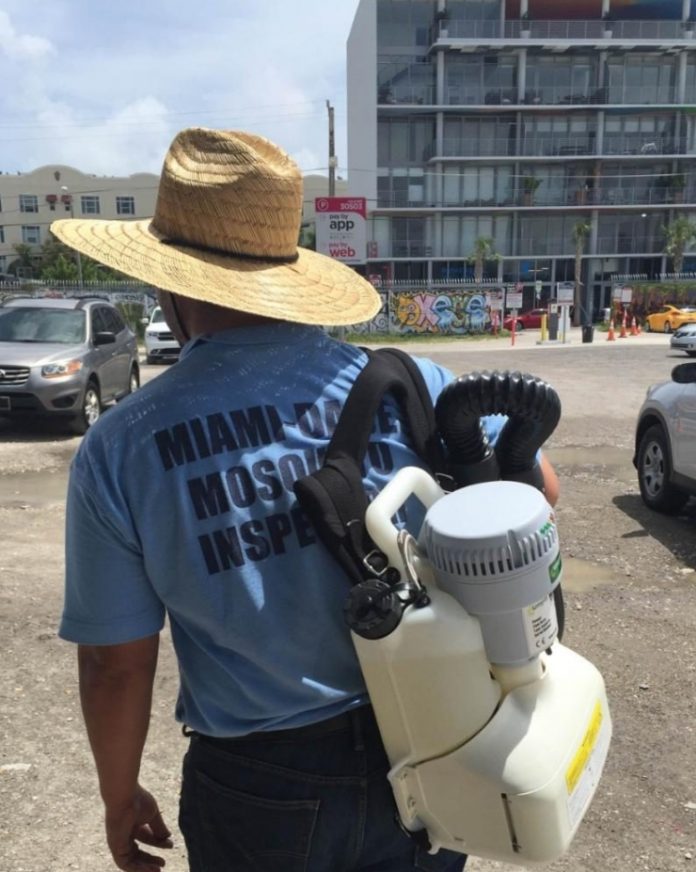
WASHINGTON – The Food and Drug Administration on Friday took the radical step of recommending that blood donations in all 50 states and U.S. territories be screened for the Zika virus. Such costly and time-consuming testing is typically only done for the most dangerous infectious disease outbreaks and signals how seriously U.S. officials are taking the Zika threat.
The announcement comes as the outbreak in Florida, the first state with local mosquito transmission of the virus, appears to be spreading.
The initial cases were in or around Miami, but in recent days Gov. Rick Scott said health officials also had confirmed infections in the St. Petersburg and Palm Beach areas. The entire Gulf Coast is at high risk, however, given the prevalence there of the species of mosquito that hosts the pathogen.
Peter Marks, director of the FDA’s Center for Biologics Evaluation and Research, said the advisory was put out because “there is still much uncertainty regarding the nature and extent of Zika virus transmission.”
In a media conference call, he noted the “rapid expansion” of the virus, which is now actively spreading in more than 50 countries in the Americas and Caribbean. The United States has documented 8,000 cases of Americans who acquired the virus abroad and 2,000 infected through local transmission. Nearly all of those in the latter group are in Puerto Rico.
“Given the frequency of travel of individuals within the United States, there is the risk that people without symptoms infected with Zika virus could donate blood and thereby transmit Zika virus,” Marks said.
Florida already has seen one Zika-positive donation, although it was isolated from the blood supply. “It shows the system is working properly,” Marks said, adding that there have been no cases of individuals becoming infected through transfusions.
The FDA guidance impacts testing of all donated whole blood and blood components such as plasma and platelets in the United States and territories. The agency had previously advised blood banks in areas where the virus is actively spreading — as in Puerto Rico, where one in every five residents is expected to be infected by the end of the year — conduct such screening. Florida began conducting universal screening this summer.
The timeline for rolling out the blood testing nationwide is aggressive and the effort promises to be a logistically challenging one. The U.S. blood donation system is massive with about one million units of blood collected from each month. (Each unit is equivalent to about a pint and the average humans have eight to 12 units in their bodies.)
Marks said that within four weeks, 11 other states will be implementing Zika screening because of their location or because of the countries from which travelers are arriving. Those states are: Alabama, Arizona, California, Georgia, Hawaii, Louisiana, Mississippi, New Mexico, New York, South Carolina and Texas.
Within 12 weeks, he said, such measures should be in place in the rest of the country.
Zika first gained global attention because of a large number of babies being born in Brazil with serious brain abnormalities after their mothers were infected and has been somewhat of a medical moving target ever since. A paper published earlier this week by radiologists working in the epicenter of the outbreak included devastating images of how Zika attacked babies’ brains. They showed that the damage was much more extensive than medical experts had thought.
Most people never develop any symptoms when infected, but researchers have linked the virus to a number of previously unknown effects, including neurological conditions in adults that can lead to paralysis or even death. Researchers also have discovered that the virus can be sexually transmitted, complicating prevention efforts.
One possible complication is that the only blood screening test available for Zika is experimental. The FDA has authorized its use as an investigational new drug.
The agency said in a statement that its action followed “careful consideration of all available scientific evidence, consultation with other public health agencies, and taking into consideration the potential serious health consequences of Zika virus infection to pregnant women and children born to women exposed to Zika virus during pregnancy.”
Picture:
—
(c) 2016, The Washington Post · Ariana Eunjung Cha

